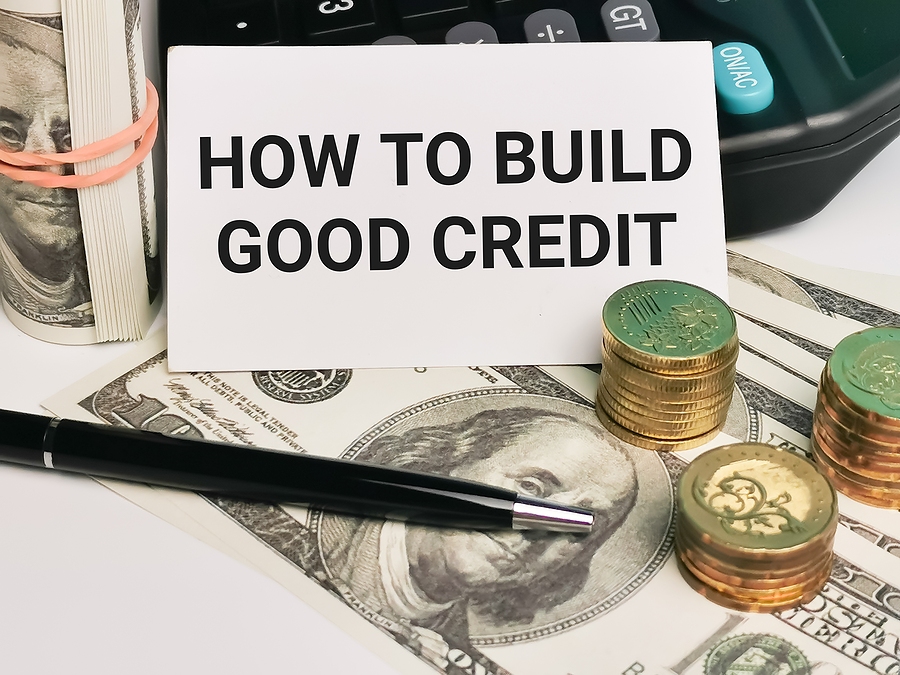Building credit from scratch can seem like a daunting task, but it’s an important step toward financial independence. Your credit score is a measure of your creditworthiness and is used by lenders, landlords, and other entities to determine your ability to repay debt.
A good credit score can mean better interest rates, easier access to loans, and even lower insurance premiums. Here is your ultimate guide to building credit from scratch. These 10 points will put you on the right path to success.
1. Check your credit report
The first step in building credit is knowing where you stand. Check your credit report for errors, inaccuracies, or fraudulent activity. You can obtain a free credit report once a year from each of the three major credit bureaus: Equifax, Experian, and TransUnion. Review your credit report carefully and dispute any errors or inaccuracies with the credit bureau.
2. Open a bank account
Opening a checking or savings account is a great way to start building credit. Having a bank account shows lenders that you have a stable financial history and that you are responsible with money. Additionally, opening a bank account can help you build a relationship with a financial institution, which can be useful when applying for credit in the future.
3. Apply for a secured credit card
A secured credit card is a great way to start building credit if you have little or no credit history. With a secured credit card, you deposit a certain amount of money, which becomes your credit limit. You then use the card as you would a regular credit card, making timely payments and keeping your balance low. Over time, you can graduate to an unsecured credit card, which does not require a deposit.
4. Make timely payments
One of the most important factors in building credit is making timely payments. Late payments can negatively impact your credit score and stay on your credit report for up to seven years. To avoid late payments, set up automatic payments or reminders to pay your bills on time.
5. Keep your balances low
Keeping your balances low can help improve your credit score. Lenders look at your credit utilization, which is the amount of credit you are using compared to your credit limit. Keeping your credit utilization under 30% can help improve your credit score.
6. Apply for a credit builder loan
A credit builder loan is a type of loan designed to help you build credit. With a credit builder loan, you borrow a small amount of money and make timely payments over a set period of time. At the end of the loan term, you receive the money you borrowed, plus any interest earned. Making timely payments on a credit builder loan can help improve your credit score.
7. Apply for a small personal loan
A small personal loan can also help you build credit. With a personal loan, you borrow a fixed amount of money and make monthly payments over a set period of time. Making timely payments on a personal loan can help improve your credit score and show lenders that you are responsible with credit.
8. Become an authorized user
Becoming an authorized user on someone else’s credit card can help you build credit. As an authorized user, you have access to the credit card, but you are not responsible for making payments. However, the account activity is reported to the credit bureaus, which can help improve your credit score.
9. Avoid opening too many accounts at once
Opening too many accounts at once can negatively impact your credit score. Each time you apply for credit, a hard inquiry is placed on your credit report, which can lower your score. Additionally, having too many accounts can make it difficult to manage your finances and make timely payments.
10. Monitor your credit score
Monitoring your credit score can help you stay on top of your credit and identify any issues early on. You can obtain your credit score for free from many credit card issuers or credit monitoring services.
In conclusion, building credit from scratch can seem overwhelming, but it’s an important step toward financial independence. By following these steps, you can start building your credit history and improving your credit score.
Remember to be patient, make timely payments, and monitor your credit score regularly. With time and responsible credit use, you can achieve a good credit score and better financial opportunities.

I have a credit score in the good range.of 650 to 700 but lack of credit activity in the past 5 to 7 years. I don’t want a secured card as this doesn’t look very good. I have a capital one walmart card which is taken automatically from my checking account every month. I only owe a small amount to cpl lab which I will pay in full tomorrow. Where do I go from here? I am an authorized user on an account I do not use but gets paid on time every month. I would love to get some Perks this time instead of high rates or annual fees. Any advice on the best card for my needs?
Any advice is welcome and I’m grateful for it!